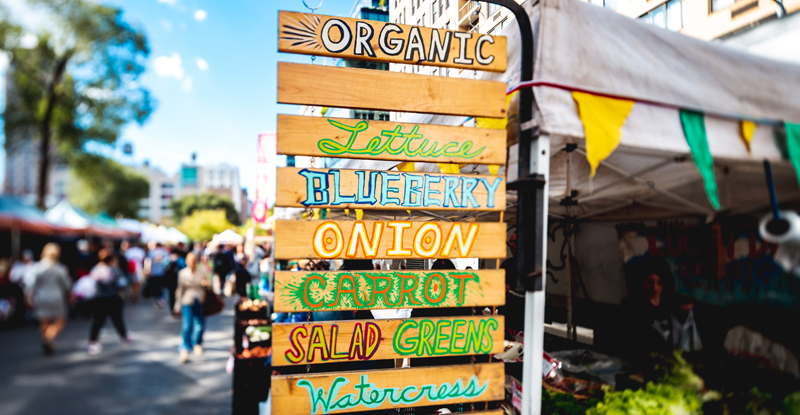Are organic foods better for you?

The term “organic” continues to be major topic of conversation—maybe because it’s so confusing. Should you buy organic foods? Is conventionally grown produce harmful for your health? Are organic foods worth the extra cost? All of these are valid questions, and it’s hard to get a straight answer.

Why choose organic foods?
Many people buy organic produce to avoid pesticides and GMOs (genetically modified organisms). Buying organic can mean your food had lower exposure to pesticide residues, fewer additives, and improved environmental and resource processes and practices. Keep in mind, all produce—organic or otherwise—is evaluated to meet safety guidelines. Who is responsible for this? The Environmental Protection Agency (EPA) evaluates the safety use and safe intake level of pesticides. The Food and Drug Administration (FDA) is responsible for ensuring domestic and imported produce meets these levels. When it comes to buying organic or not, it really comes down to personal choice, and often budget. Rest assured that your food is likely safe, even if it’s not organic.
Why are organic foods often more expensive?
There are three very straightforward reasons:
- Organic farming practices are more expensive.
- Organic foods often have a shorter shelf life.
- Obtaining and maintaining the USDA’s organic label is a costly process. Some small farms may not be able to afford the label even though they use organic farming practices.
Go to a farmers market and talk to a local farmer to figure out where your food is coming from. You may be able to get organic produce at lower prices from these local vendors—they just won’t have the label!
Is eating conventionally grown food harmful to health?
There are no studies that demonstrate conventionally grown produce is harmful to health, but some research indicates organically grown produce may have higher nutrient levels. It’s generally accepted that the benefit of consuming conventionally grown fruits and veggies outweighs the potential health risk.
Just make sure that you wash your fruits and veggies, conventionally grown or not. The FDA recommends gently washing produce under plain running water (no soaps or washes necessary). Use a clean brush to scrub firm produce and be sure to rinse produce before peeling or cutting into it to avoid transferring dirt and bacteria from the knife onto the fruit or vegetable.
Bottom line? Some fruits and veggies, organic or not, are better than not eating any at all. Conventionally and organically grown fruits and vegetables both have great health benefits. You just need to decide if the slight added benefit of organic produce is worth the cost.
Resources:
https://www.fda.gov/consumers/consumer-updates/7-tips-cleaning-fruits-vegetables



